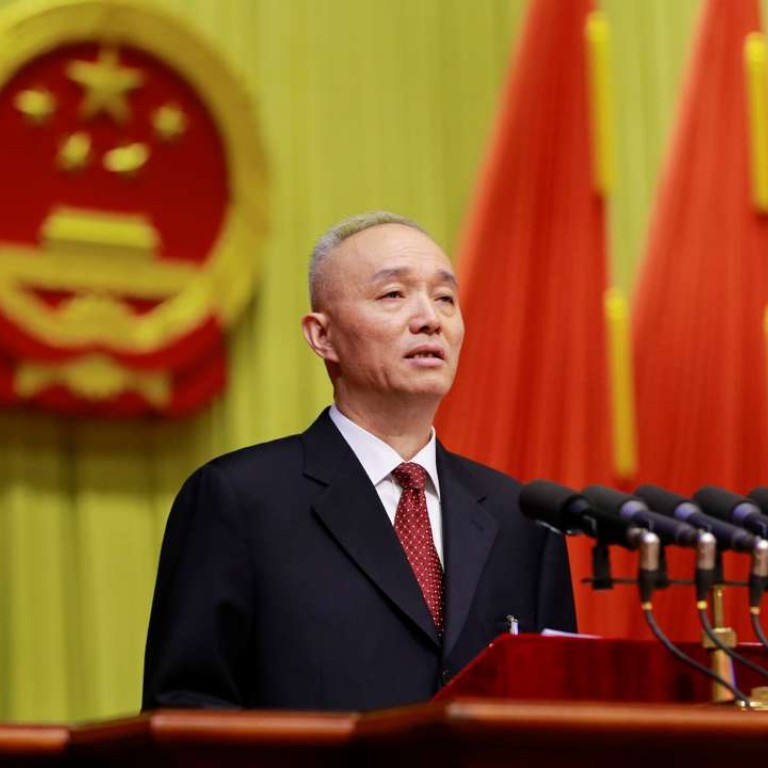
Mayor of Beijing is put in charge of military reform group
Appointment of Cai Qi, who has close ties to Xi Jinping, seen as further evidence Cai will advance to Politburo
A long time protégé of President Xi Jinping has been appointed to oversee part of China’s ongoing military reform, and there is speculation that he will be promoted to the top echelon of the leadership in the power transition later this year.
Cai Qi, the mayor of Beijing, would head a leading group in the capital to ensure that the military stopped providing paid services, the Beijing Daily reported on Wednesday.
“[We] must strengthen coordination of local government and the military, and implement well this significant decision by the party’s central leadership and General Secretary Xi Jinping,” Cai said at the group’s first meeting on Tuesday.
The new appointment is largely nominal, and military officials will still be primarily responsible for ensuring that the PLA stops providing paid services. But the appointment has raised eyebrows, because according to official reports, the same role has been taken by party chiefs in other provinces, who are more senior than provincial governors and are the nominal heads of provincial military zones.
Beijing is one of the four municipalities in China that are equal in profile to provinces. The party chief of Beijing, Guo Jinlong, did not attend the meeting on Tuesday.
Cai had worked under Xi for more than a decade, first in Fujian and later in Zhejiang province. He was appointed the acting mayor of Beijing last October, his fourth job in four years.
With his close ties to Xi and quick rise, Cai was considered one of the top contenders to be named to the 25-strong Politburo in the major power transition this year, said Beijing-based political commentator Zhang Lifan.
“Cai is very likely to be the party chief of Beijing, considering how trusted he is,” said Zhang. “It was important to be placed on the waiting list for senior offices before the 19th party congress meeting.”
The city’s current party chief, Guo, has reached retirement age and is expected to step down at the national congress this autumn.
For the past 20 years, the role of Beijing’s party chief has always been taken over by the mayor. Making the transition has automatically earned them a seat in the Politburo.
Xi announced in 2015 that he would ban the People’s Liberation Army and the nation’s armed police from providing any paid services, in a move to curb graft and make the army more loyal and focused on combat.
The central government said last year that the provision of paid services had become a source of “regulation violations and corruption”.
Former president Jiang Zemin ordered a ban on military business operations in 1998, but paid services were allowed to continue, to support military spending and the training of technicians.

